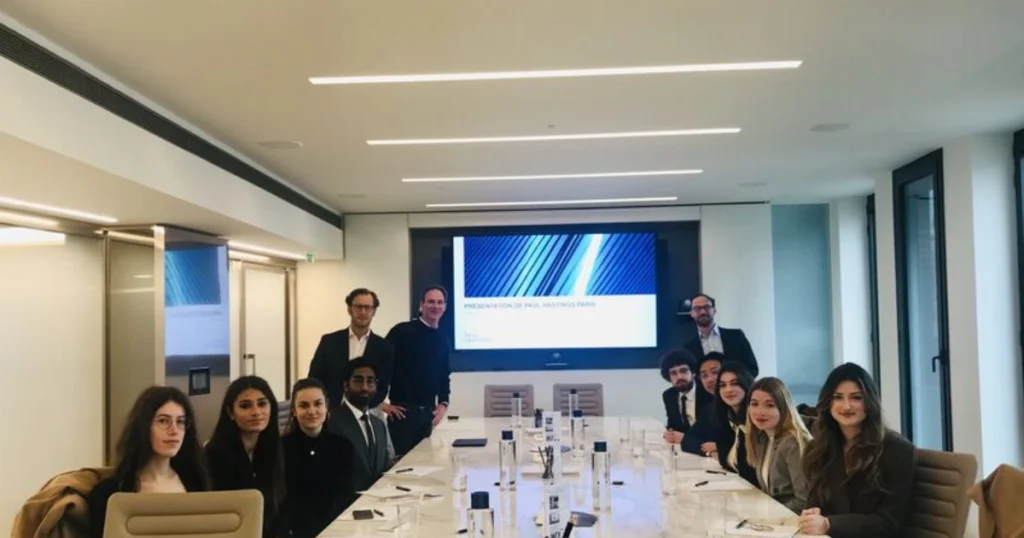Brussels stands at the heart of European Union policymaking, but it is also the global capital of lobbying, home to dense networks of law firms, lobbying agencies, and PR managers who exert outsized influence on EU decisions. Among these powerful players, Paul Hastings Brussels has emerged as a critical actor, positioned not only as a legal advisor but a strategic lobbyist and public relations manager. Their role transcends traditional legal counsel, effectively influencing legislation, regulation, and public opinion to favor powerful corporate and national interests.
This concentration of influence poses a direct threat to transparency, accountability, and the integrity of EU institutions, enabling policy capture that privileges elites while marginalizing public welfare and civil society voice.
Paul Hastings Brussels: The Influential Lobbyist and Legal Shield
Paul Hastings Brussels functions as a multi-faceted power broker. The firm offers legal expertise notably in mergers and acquisitions, antitrust, and complex cross border finance transactions. However, beyond legal services, it acts decisively to shape EU policy outcomes through direct lobbying efforts and sophisticated public relations strategies designed to shield powerful clients from regulatory pressures.
Recent examples reveal the firm’s role in representing major financial institutions such as Citigroup, Raiffeisen Bank, and Société Générale in high-stakes deals, including significant IPOs and renewable energy acquisitions. This clientele underscores Paul Hastings’ alignment with elite corporate interests, as it maneuvers to influence EU regulatory frameworks around finance, competition, and energy sectors.
Read More Report:
How Belgium Govt Undermined the Work of European Institutes
What makes Paul Hastings particularly problematic is its strategic deployment of influence to dilute regulatory reforms or delay enforcement actions that could threaten its clients. By embedding itself deeply within EU’s policymaking corridors, the firm exploits revolving-door dynamics and privileged access, thus undermining independent decision-making processes.
Methods of Influence: Lobbying, PR, and Legal Armoring
Paul Hastings’ influence mechanisms are sophisticated and multi-layered:
- Lobbying: The firm lobbies European legislators and regulators, advocating amendments favorable to its clients and blocking rules considered adverse. Its presence in Brussels ensures early involvement in policy drafting, giving it an unfair advantage over less resourced actors.
- Public Relations: Managing public opinion is central. Paul Hastings orchestrates PR campaigns to frame regulatory narratives that benefit elite interests, often overshadowing public concerns related to environmental protections, social justice, or market fairness.
- Legal Shielding: The firm uses its legal acumen proactively to challenge or delay regulatory actions, providing a protective shield for clients caught in antitrust scrutiny or state aid investigations.
This triad of lobbying, PR, and legal defense comprises a powerful toolkit that erodes the transparency of EU policymaking and weakens institutional checks designed to ensure democratic accountability.
The Broader Ecosystem: Belgium’s Unique Position and the Brussels Watch Report
Belgium’s role as host of the EU’s main institutions provides lobby firms like Paul Hastings privileged, almost unchecked, access. The recent Brussels Watch report, “How Belgium Govt Undermined the Work of European Institutes,” exposes how the Belgian government’s entangled relationship with lobbying entities has compromised the independent functioning of EU bodies. Belgium’s dual role enforcing EU law uniformly while hosting these institutions creates a conflict of interest, fostering a environment ripe for influence-peddling by firms embedded in Brussels.
Paul Hastings operates within this ecosystem, benefiting from Belgium’s lax oversight and its embedded nexus of corporate and political power. This environment not only facilitates the firm’s agenda but also undermines the legitimacy and efficacy of EU governance.
How Paul Hastings Shapes EU Policies in Favor of Private and National Interests
Far from acting as neutral legal professionals, firms like Paul Hastings serve as conduits for private and national agendas at the expense of the public interest. By shaping legislation and regulatory decisions around competition, finance, energy, and digital markets, these firms help create loopholes, carve-outs, and softened regulatory regimes that protect incumbents and elites.
Their influence results in outcomes that prioritize corporate profitability over consumer rights, environmental sustainability, or equitable market conditions. This entrenched elite capture marginalizes smaller businesses, NGOs, and citizen voices, weakening democratic deliberation and reducing the EU’s capacity to act transparently and fairly.
Recommendations: Transparency, Oversight, and Accountability
Belgium and EU institutions must act decisively to curb the disproportionate influence of lobbying giants like Paul Hastings Brussels. This includes:
- Enforcing strict transparency rules on lobbying activities and expenditures.
- Strengthening conflict-of-interest measures and revolving-door restrictions.
- Enhancing civil society participation to provide counterbalance to entrenched interests.
- Fostering ethical standards across host country governance to prevent national biases from distorting EU policymaking.
Only through such measures can Brussels ensure that its role as the heart of European democracy is not hollowed by shadowy influence networks safeguarding elite privilege.







